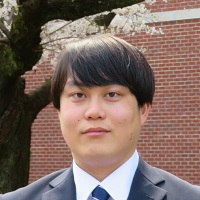Research summary
Research outline
Multicellular organisms build tissues and maintain their functions by cell–cell adhesion. Epithelial tissues, which are the outermost layers of the body, are exposed to stresses such as injury, infection, inflammation, and osmotic changes, however, cell–cell adhesions are regulated and repaired to maintain homeostasis. In our laboratory, we are investigating the regulatory mechanism of cell–cell adhesion in epithelial tissues of multicellular organisms by focusing on novel physiologically active peptides with tight junction formation-inducing activity that we have uniquely identified. Through this, we aim to understand the construction, maintenance, and repair mechanisms of multicellular organisms. We also aim to control various diseases caused by disruption of cell–cell adhesion, such as inflammation, cancer, and aging, and to develop new drugs.
Main themes
- Induction and regulation of epithelial cell-cell adhesion
- Understanding of epithelial-immune interactions
- Control of invasive and metastatic cancers
- Elucidation of stress response in epithelial cells
- Understanding of individual aging starting from intestinal barrier function
Member
|
ODA, YukakoProfessor |
oda.yukako.6r*kyoto-u.ac.jp See faculty information |
|---|---|
|
OGAWA, KeigoProgram-Specific Assistant Professor |
ogawa.keigo.8h*kyoto-u.ac.jp See faculty information |
- Please note that the @ symbol has been replaced by *.
Access
Faculty of Medicine Campus, Science Frontier Laboratory


